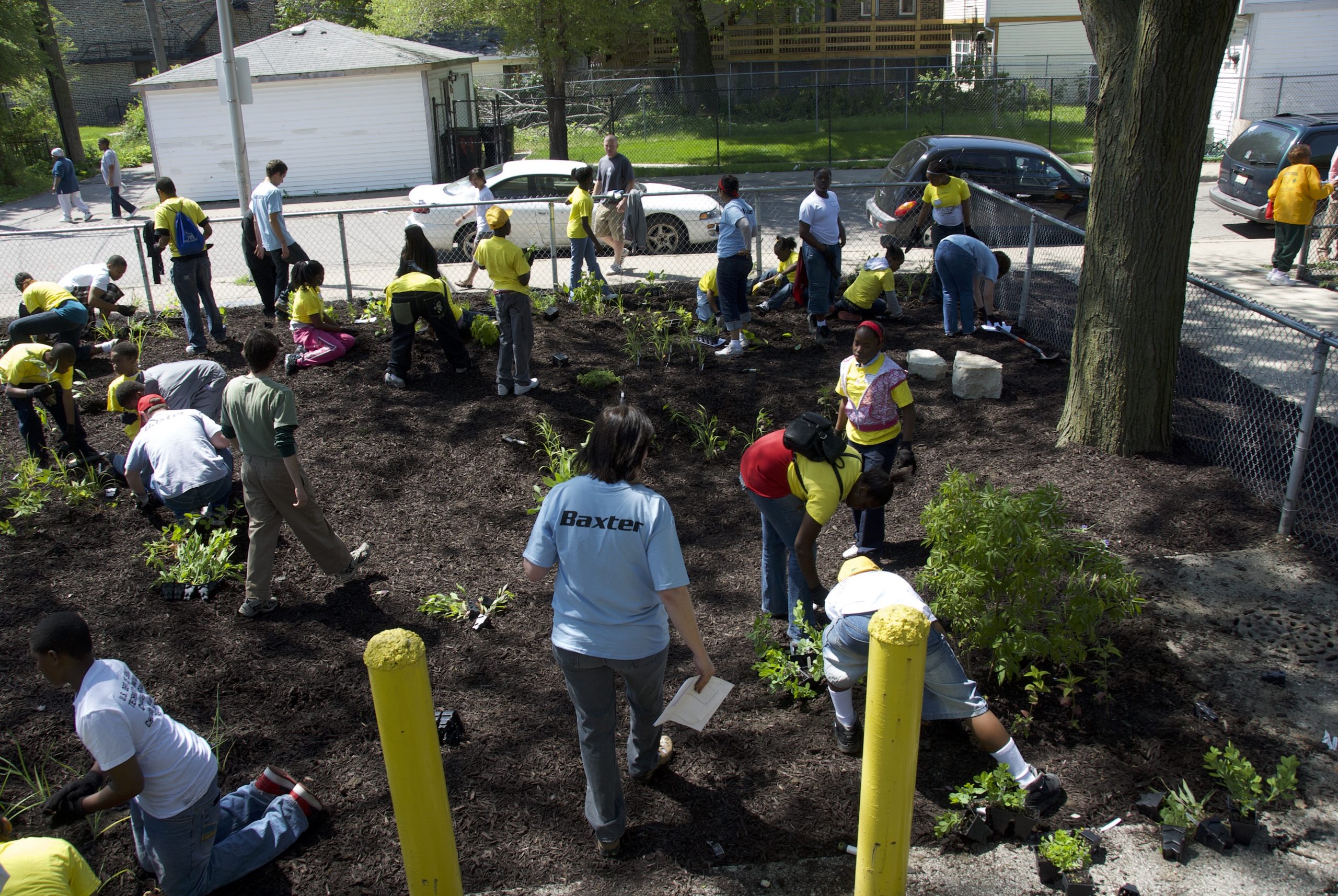Landscaping & Gardening
Benefits of Native Plants

Community coming together to plant native plants in an empty lot
MARCH 14, 2023
Native plants are well-adapted to local conditions, especially if they are local ecotypes. Natives are an integral part of the natural ecosystem and play a vital role in maintaining the health and balance of our environment. These plants have evolved over time to thrive in specific climate and soil conditions, making them well-suited for the regions in which they grow.
Incorporating a variety of native plants into your garden, including shrubs, trees, forbs, grasses and more will create a diverse and interesting landscape with countless benefits, these include:
Lower Maintenance – While native plants need a certain amount of care and maintenance, native gardens require less pruning, water and overall attention. Native plants also eliminate entirely your need to put down fertilizer or pesticides, while requiring less of your time to maintain.
Save Water – Once established, native plants will only need minimal irrigation beyond usual rainfall, this saves our valuable water resources and as well as the cost.
Invite Wildlife – Pollinators like butterflies, bees and birds, not to mention countless other wildlife all rely on native ecosystems for various stages of their life cycle, whether it be for food or shelter. And in return, pollinators will return the favor by setting more fruit in your garden while other wildlife will help your landscape be free of mosquitoes and plant-eating bugs.
Environmental Impact– Native plants help to clean the air by absorbing carbon dioxide and releasing oxygen, and they also help to prevent soil erosion and water pollution by stabilizing soil and filtering runoff.
Reduce Invasive Species – Gardening with native plants helps lessen the introduction and spread of invasive species. Many of the invasive species we struggle with today were intentionally introduced as gardening plants but have now made its way into our forest preserves, parks, and natural areas. Buckthorn, garlic mustard, bush honey suckle are just a few of the multitudes of invasive plants that can take over entire swaths of vegetative areas. But by removing these non-desirables you eliminate their ability to further spread while adding much needed native flora to a local ecosystem.
Eliminate Use of Chemicals –Most commercially available pesticides and insecticides in particularly are general use, this means beneficial insects can quite often be the unsuspecting target of insecticide use. These beneficials are nature’s way of keeping unwanted pests at bay. Thus by eliminating insecticides and pesticides you’re more likely to encourage beneficials do what they do best. And this reduction or elimination of pesticides will positively impact the rest of your local biome.
Using native plants in your garden or landscape is the number one ecologically beneficial practice you can do as a homeowner or land steward. By choosing to plant native trees in your yard or community, you can help to support local biodiversity and contribute to the health and well-being of local ecosystems.
[ez-toc]